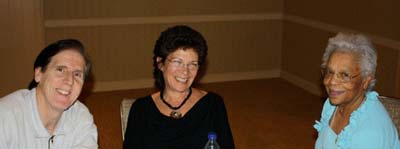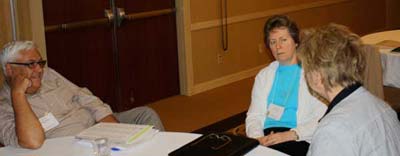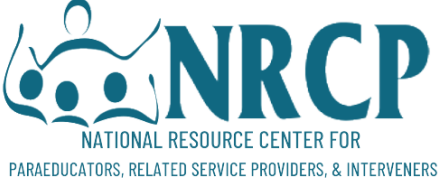
The conference had begun and last tonight leaders from all over the country and world gathered here in Salt Lake City to discuss successes and challenges in their own states and countries, including three visitors from China.
The last half of the meeting was spent going around the room to hear about good things that were happening with paraprofessional all over the world. There was a lot of information and coordination that came really fast, but here are a few of the notes I was able to write down:
If you were there and I missed anything or you would like to add a website, just leave a comment!
Susan Simon From Iowa:
Iowas has now had voluntary paraeducator certification for 10 years, with large numbers of people certified.
Barbara Jo Stahl from Minnesota:
Barbara shared a new series of graduate level courses: Learning Support- a publication for teaching assistants in primary schools. A growing number of publishers producing books for teaching assistants.
Ritu Chopra from Colorado:
Working with the Para Center on a training program for who want to become teachers. Statewide paraprofessional training, under part C of IDEA. Setting standards with a coalition focusing on roles and responsibilities, also developing a curriculum (15 courses) train the trainer model.
Elena Sandoval-Lucero fro Colorado
Working on bilingual issued for teachers and paraeducators in urban settings.
Donna Broyles from Arkansas:
Focusing on how to work together as a team and a para to teacher initiative with community colleges and universities and partnering with school districts to get paras into that pipeline.
Carla Mitchler from California:
with the California CSEA with 80,000 paras in their membership. California just had their 12th State paraprofessional conference, open to anyone who wants to go. They also have a paraeducator task force and a magazine with tips for paraeducators.
Marilyn Likins from Utah:
Asked by the state to write a handbook for instructional paraeducators that wil go out to paraeducators, administrators and teachers. Working with the Professional Employment Center on career pathways for a para to teacher program.

Sue Koprowski from Wisonconsin:
We had an active task force that provided a lot of training through state and regional conferences as well as stronds within the teacher conferences. Unfortunatley in January the funding was dropped. Working on establishing more avenues for students to move on to get teacher education.
Kent Gerlach from Washington:
Washington State has 14 competencies that paras must get within three years. Now focusing on school administrators and teachers- we have worked some paraprofessional interview questions for special educators. Concerned about the appropriateness of some training packages.
Betty Montgomery from Maryland:
Established a new Paraeducator Coordinator position to work with paraeducators and instructional data assistants.
Sally Murek from Maryland:
150,000 students, 200 schools and 2400 paraeducators in their district. Making sure the voice of the para is heard and that training is happening. Working on university partnerships. 60% of their 2400 paraeductors already have a 4 year degree.
Anna Lou Pickett
Ann Lou wrapped things up saying, “I’m sitting here listening and getting cold chills up my spine because we have made so much progress. However sometimes it feels like we are reinventing the wheel.” She gave everyone the advice that whenever progress is made to make sure that there are people and policies in place so the progress will continue after you are gone.
